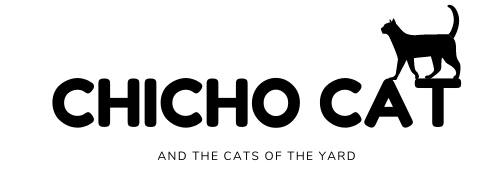Cats are notorious for their discerning palates and selective eating habits. As pet owners, it’s natural to wonder about the safety of various foods when it comes to our feline friends. Watermelon and melon, in particular, are popular fruits (read here for strawberries or grapes too) during the summer months, but can cats safely indulge in these juicy treats?
In moderation, small amounts of ripe watermelon might not cause harm to your cat. However, it’s crucial to remember that cats have specific dietary needs that differ significantly from humans. While watermelon is not toxic to cats, it’s not a part of their natural diet and doesn’t provide essential nutrients they require.

The flesh of the fruit isn’t typically dangerous, but some parts, such as seeds and rind, could pose risks. Watermelon seeds may cause intestinal blockages or upset your cat’s digestive system if consumed in large quantities. Additionally, the rind can be difficult for cats to digest and may lead to gastrointestinal issues.
Feeding watermelon to your cat regularly or in large amounts can lead to adverse effects. The high sugar content in these fruits can potentially cause problems. Moreover, excessive consumption of fruits like watermelon might contribute to unnecessary weight gain and nutritional imbalances in cats.
Can Cats Eat Melon?
Cats, known for their selective eating habits, may occasionally show interest in human foods like melon. While melon isn’t toxic to cats, it’s not an ideal treat for them either. Melon, with its high water content and natural sugars (apples too), isn’t a part of a cat’s natural diet.

Offering a small nibble of ripe melon as an occasional treat might not immediately harm your cat, but it’s essential to be cautious. Some cats may have sensitive stomachs, and the sugars in melon can lead to digestive issues such as diarrhea or upset stomachs.
Can Kittens Eat Watermelon?
Kittens, like adult cats, have specific dietary needs crucial for their growth and development. Watermelon, while a delightful summer treat for humans, isn’t an ideal food for kittens. Their delicate digestive systems may not handle fruits well.
While a tiny lick or accidental nibble of ripe watermelon might not immediately harm a kitten, it’s important to avoid intentionally offering it to them. Kittens require a diet rich in protein and specific nutrients found in specially formulated kitten food. Vets can guide you on the best nutrition for your kitten’s growth and health.

Can cats eat watermelon seeds?
Watermelon seeds, often found amidst the juicy flesh of the fruit, may raise concerns for cat owners. While a few seeds accidentally ingested might not immediately harm your cat, intentional consumption of watermelon seeds isn’t recommended. The seeds of watermelon contain compounds that could pose risks.
Can cats eat watermelon rind?
Watermelon, a refreshing summer fruit, has a rind that might catch a curious cat’s attention. However, while cats can sometimes exhibit interest in unusual items, feeding them watermelon rind isn’t advisable. The tough and fibrous nature of watermelon rind makes it challenging for a cat’s digestive system to process.

Can cats eat honeydew melon?
Honeydew melon, with its sweet and juicy flesh, may tempt cat owners to share this fruit with their feline companions. While honeydew melon isn’t inherently toxic to cats, it’s not an ideal treat for them either. Cats have specific dietary needs and fruits like honeydew melon don’t fulfill these requirements. Offering small amounts of ripe honeydew melon occasionally might not immediately harm your cat, but it’s essential to be cautious.
The high sugar content in honeydew melon (like bananas too) can potentially lead to health issues. Cats may not digest fruits and vegetables as efficiently as humans, which can cause discomfort.

Are cats allergic to watermelon?
Allergies in cats typically revolve around proteins found in their primary diet, like certain meats or grains, rather than fruits like watermelon. However, individual cats might display unusual reactions to various foods. Watermelon allergies in cats are rare but not entirely impossible. Cats might show signs of allergic reactions such as itching, skin irritation, gastrointestinal upset, or even difficulty breathing if they have an allergy to components in watermelon. It’s important to note that these reactions are uncommon and might indicate a sensitivity rather than a full-blown allergy.
Can cats eat cantaloupe melon?
Cantaloupe melons are a delicious summer treat for humans, but what about our feline friends? Cats are known for their particular dietary needs, and when it comes to fruits like cantaloupe, caution is advised. While small amounts of fruits can sometimes be safe for cats, cantaloupe isn’t an ideal choice. Cats lack specific enzymes to efficiently break down sugars found in fruits, including cantaloupe. Moreover, the high sugar content in cantaloupe can potentially upset a cat.

Additionally, the large amount of water in cantaloupe might not sit well with your cat’s digestive system. Overconsumption of water-rich fruits could potentially lead to an upset stomach or even a condition called osmotic diarrhea in cats. If your cat ingests a small amount of cantaloupe accidentally, it might not cause serious harm. However, deliberately feeding cantaloupe to your cat is not recommended.
When it comes to treating your cat, there are plenty of cat-safe options available. Consult with your veterinarian for suitable treats that won’t compromise your cat’s health.








